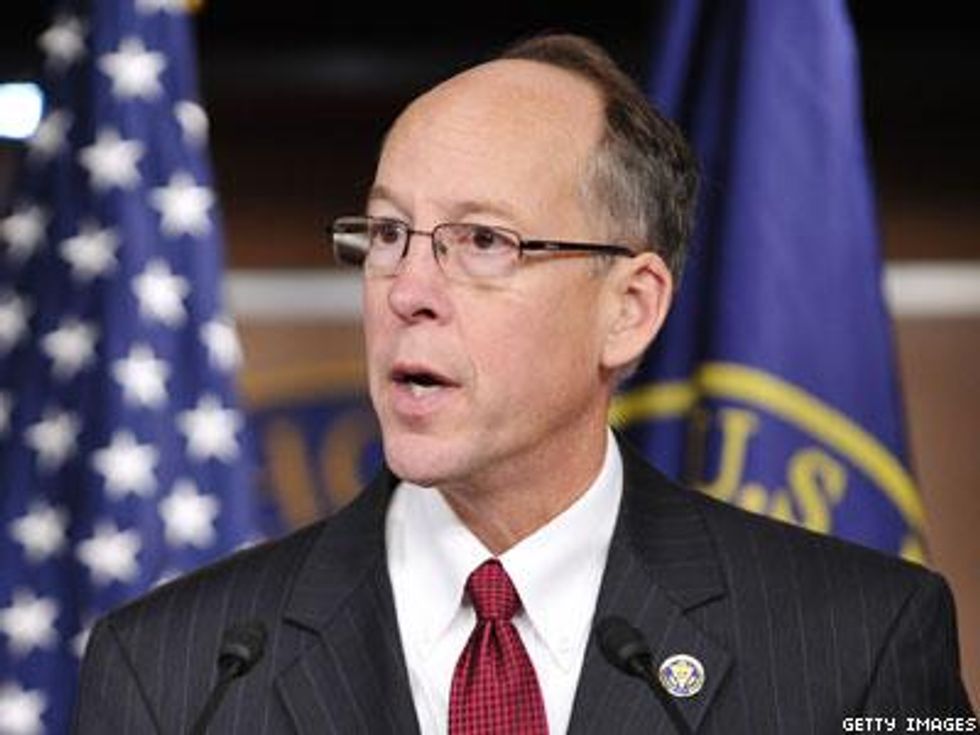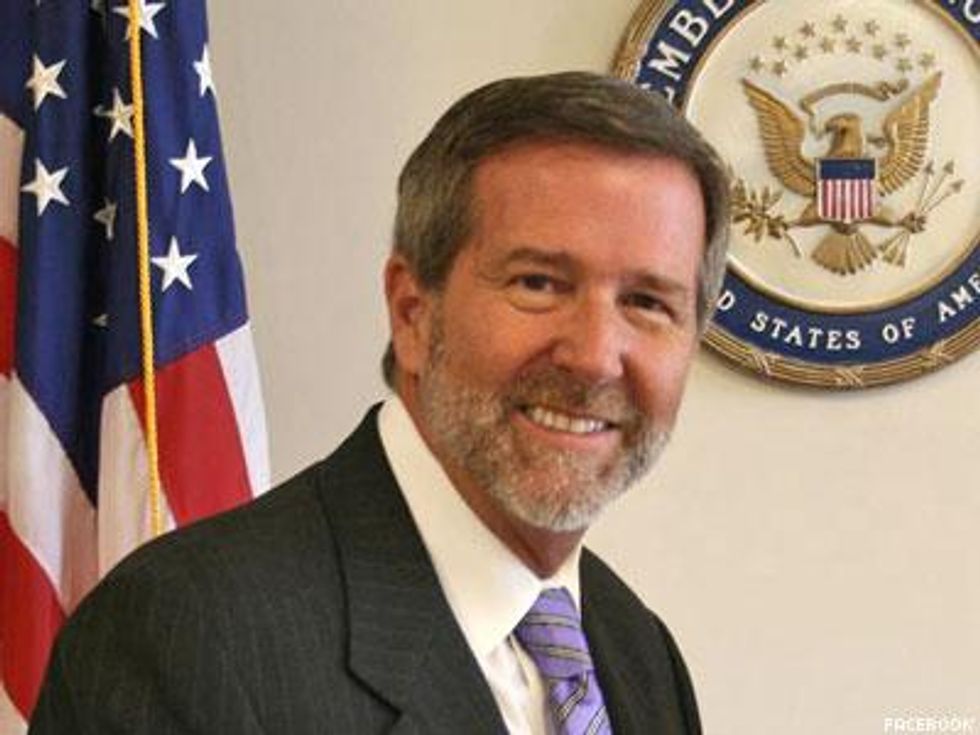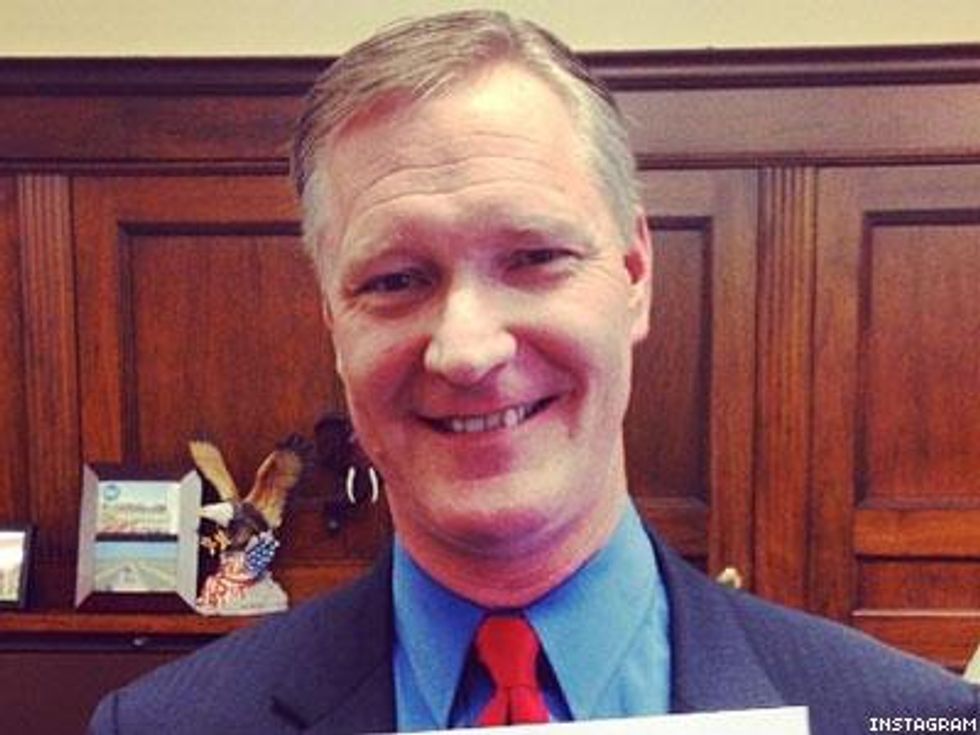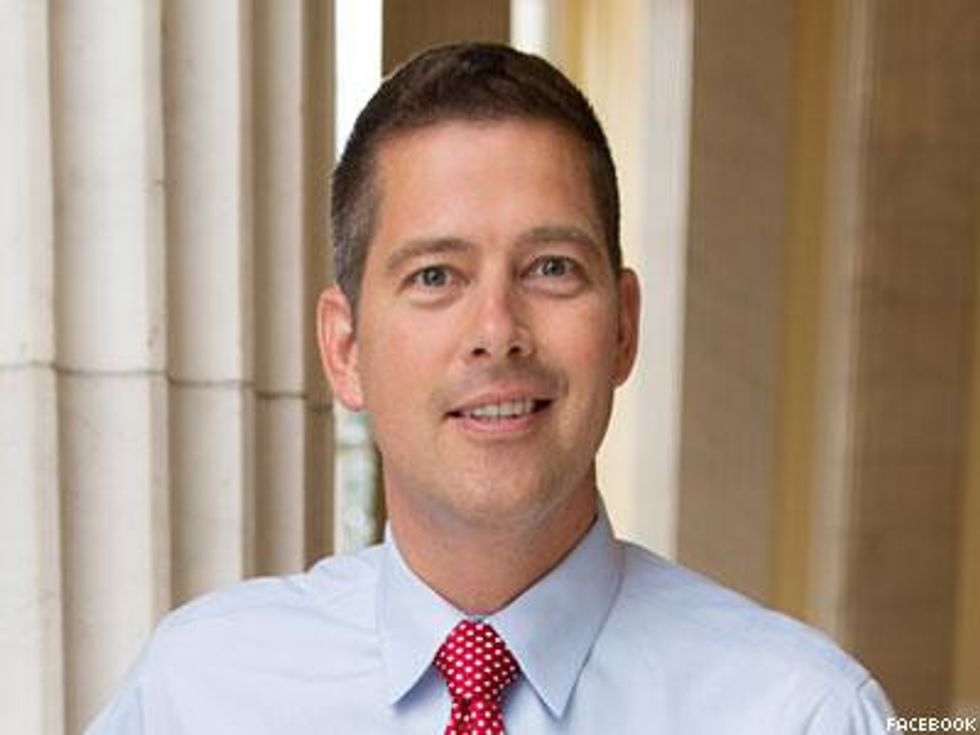President Barack Obama made good on a 2008 campaign promise Monday when he signed two executive orders that will protect many LGBT people from discrimination in the workplace.
By adding the words "sexual orientation" and "gender identity" to two existing executive orders, the president made it illegal for companies that contract with the federal government to fire, decline to promote, or refuse to hire someone simply because they are LGBT. The order, which takes effect immediately, will protect an estimated 20 percent of American workers.
Still, there are plenty of LGBT workers across the country who have no workplace protections in their state, city, or privately provided by their workplaces. The long-langishing Employment Non-Discrimination Act, however, would aim to fix this lack of protection for workers on the basis on their sexual orientations and gender identities.
Earlier this month, a coalition of LGBT organizations announced they were withdrawing support for ENDA over the bill's religious exemptions, which they now see as too broad in light of the precedent set by the Supreme Court's Hobby Lobby ruling. But several prominent LGBT advocacy organizations -- including the Human Rights Campaign, National Center for Transgender Equality, and Freedom to Work -- are standing by the embattled legislation, arguing that even an imperfect bill is a starting point and would be better than the dearth of federal protections currently offered to LGBT workers. Despite the fact that most Americans believe it's already illegal to fire someone because they are LGBT, in reality, gay, lesbian, and bisexual employees can be fired on the basis of their sexual orientation in 29 states, while transgender employees can be fired, not promoted, or not hired because of their gender identity in 31 states.
So far this summer, The Advocate has profiled 25 members of Congress who fit the bill as potential cosponsors of the bill. While voting support is crucial, cosponsorship is the goal, as Speaker John Boehner has said that he finds it refuses to bring the legislation up for a vote. The Senate has already approved ENDA, and lobbyists and advocates, particularly at Freedom To Work, believe that getting the consponsor count up to 218 in the House -- just enough to force a vote through a discharge petition -- might be the most effective way to pass the legislation this year.
Here are the previous entries on this project:
June 19: Representatives Mario Diaz-Balart, David Jolly, Tom Reed, Gene Greene, and Pete Gallego
June 26: Representatives Dan Lipinski, Jim Gerlach, Patrick Meehan, Mike Fitzpatrick, and Henry Cuellar
July 3: Representatives John Barrow, Bennie Thompson, Dave Reichert, Pat Tiberi, David Joyce
July 10: Representatives Leonard Lance, Rodney Frelinghuysen, Joe Heck, Nick Rahall, and Mike McIntyre
July 15: Representatives Paul Ryan, Candice Miller, Dave Camp, Fred Upton, and Mike Rogers
 Rep. Greg Walden
Rep. Greg Walden
Republican, Oregon
In 2007, Walden voted in favor of the Employment Non-Discrimination Act, and voted for an LGBT-inclusive Violence Against Women Act in 2013, but otherwise the Oregon Republican scores a 0% on the Human Rights Campaign's index of lawmakers. Freedom to work, however, says there's a possibility that Walden could be convinced by local employer Facebook, which has a data center in Prineville, and is one of the most LGBT-inclusive major companies in the U.S.
In 2010, Walden said, "I don't believe in discrimination in the workplace," though he was still unsure when it came to supporting a version of the bill that included protections for transgender workers. Additionally, Walden's position as a leader in the party would be influential for drawing in more conservative supporters of the bill.
"Representative Walden is the head of the National Republican Congressional Committee where he has thrown his influential backing to openly gay Republican House candidates like Richard Tisei, Carl DeMaio, and Dan Innis," Christian Berle of Freedom To Work says. "This shows that Representative Walden understand the need for Republicans to reach out to moderates. His home state of Oregon has successfully implemented LGBT workplace protections at the state level, and Representative Walden was one of the 35 Republicans who voted for ENDA in 2007. It would be a big breakthrough for a House Republican leader like Walden to add his name to the list of cosponsors for LGBT workplace protections."
 Rep. John Campbell
Rep. John Campbell
Republican, California
The state of California has had an LGBT nondiscrimination law for years, and one of the municipalities in Campbell's district, Cathedral City, already has its own such policy. Plus two major universities in the district, the University of Southern California and University of California at Irvine, also provide protections for employees on the basis of sexual orientation and gender identity.
"Representative Campbell can look to the strong LGBT-inclusive workplace laws of his home state of California to see that LGBT fairness helps businesses and employees thrive," Berle said. "Representative Campbell voted has already voted for ENDA once, so he is in a prime position to put his name on the record to ensure workers are judged on their merits and not held back by discrimination or prejudice."
In addition to his support for ENDA in 2007, Campbell voted to repeal "don't ask, don't tell" in 2010, but that same year Campbell said the transgender protections in ENDA might be a deterrent to his support.
"This is a very small number of people that do a very extreme thing, have a very extreme surgery," he said according to Roll Call. "I think employers probably have an argument for some discrimination on that in some cases because it is so far out of the mainstream and can be readily apparent."
 Rep. Steve Stivers
Rep. Steve Stivers
Republican, Ohio
Stivers is no stranger to workplace protections, as his district includes Nationwide insurance and Cardinal Health, both of which have LGBT-inclusive non-discrimination policies. His district also includes part of Columbus, which has a city-wide policy.
"Representative Stivers has a long history of standing with the LGBT community, dating back to his tenure in the Ohio legislature," Berle says. "As a state senator, Stivers was one of two Republicans to vote against the Ohio's Defense of Marriage Act, and he also backed the LGBT-inclusive housing and employment non-discrimination bill. Since coming to Congress, he has most recently voted for the LGBT-inclusive Violence Against Women Act and he's in a prime position to cosponsor federal LGBT workplace legislation."
Early in the session, Stivers said he was open to supporting ENDA, but still expressed some reservations about the bill.
"I'm somebody that believes in nondiscrimination...I'm not familiar with that issue but none of us are for discrimination. The key is how you work it, how you do with it, and what you do to states' laws like employment at will," he said in 2013 to Think Progress. "You have to be careful to not mess up many states' employment laws by doing that. There might be a way to do it. I'm certainly not for discrimination so there might be a way to get there."
 Rep. Rodney Davis
Rep. Rodney Davis
Republican, Illinois
Davis's district also includes Champaign, Illinois, which has its own nondiscrimination ordinance, and the University of Illinois-Urbana-Champaign, which also protects LGBT employees. The Congress man is on record as believing that there should be a constitutional amendment defining marriage as being only between a man and a woman. But when he was a brand new member of Congress, one of Davis's first votes was for the LGBT-inclusive Violence Against Women Act.
"As an elected official seeking to win in the mold of moderate Republican Senator Mark Kirk -- who takes a leading role sponsoring ENDA -- Davis is in a key position to cospsonsor ENDA and appeal to the moderate and independent voters in Illinois who overwhelmingly back LGBT workplace protections."
 Rep. Sean Duffy
Rep. Sean Duffy
You may recognize Duffy from MTV's Real World: Boston, but he's since grown up to be a Tea Party member who became one of the faces of the federal shutdown in October 2013. Still, Duffy voted yes on the LGBT-inclusive VAWA, during his first session in Congress, so Berle says there's still hope that he could cosponsor ENDA. He also represents Wisconsin, the first state to have a statewide nondiscrimination ban for gay employees.
"Representative Duffy is one of the younger members of Congress, and as he looks forward in his career he should realize he's got to get himself on the right side of history by supporting LGBT fairness," Berle says. He adds, "There's also a long history of Wisconsin's support for LGBT protections, dating back to when the state became the first in the nation to pass a law protecting gay employees, and continuing on today with Senator Baldwin's ongoing support for getting ENDA passed."


 Rep. Greg Walden
Rep. Greg Walden Rep. John Campbell
Rep. John Campbell Rep. Steve Stivers
Rep. Steve Stivers Rep. Rodney Davis
Rep. Rodney Davis Rep. Sean Duffy
Rep. Sean Duffy

































































Charlie Kirk DID say stoning gay people was the 'perfect law' — and these other heinous quotes